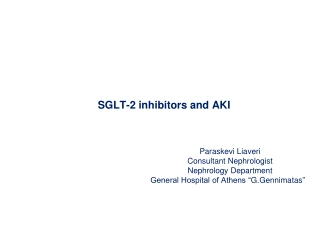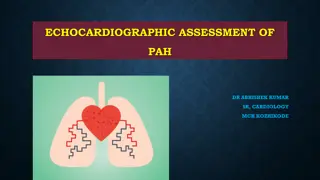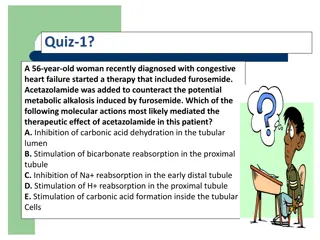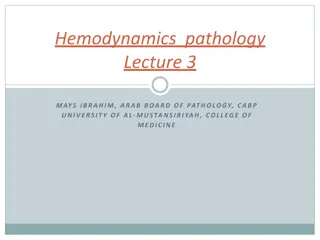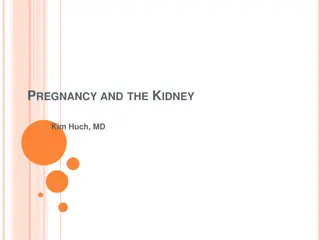SGLT-2 inhibitors and AKI
Consultant Nephrologist Paraskevi Liaveri discusses the association between SGLT-2 inhibitors and acute kidney injury (AKI). Pharmacovigilance reports highlight a higher risk of AKI with these drugs, especially when combined with RAAS blockers, diuretics, or NSAIDs. Studies suggest potential mechani
0 views • 49 slides
Understanding Hemodynamics in Left vs. Right Heart and Cardiogenic Shock
Explore the hemodynamic differences between the left and right heart, the etiologies of cardiogenic shock, and the importance of right heart catheterization in managing this critical condition. Learn about key parameters such as PCWP, RAP, CO, and more that play a crucial role in assessing cardiac f
1 views • 14 slides
Echocardiographic Assessment of Pulmonary Arterial Hypertension (PAH) Overview
Echocardiographic assessment plays a crucial role in the diagnosis, management, and prognostic evaluation of pulmonary arterial hypertension (PAH). This condition is characterized by elevated mean pulmonary arterial pressure and pulmonary vascular resistance, leading to various clinical features suc
6 views • 43 slides
Pharmacology Quizzes on Diuretics and Their Clinical Applications
This content presents a series of quizzes involving diuretics and their role in clinical scenarios related to heart failure, glaucoma, renal hemodynamics, and intracranial pressure. Questions cover various diuretic agents such as furosemide, acetazolamide, mannitol, and hydrochlorothiazide, focusing
0 views • 10 slides
Understanding Hemodynamics Pathology: Causes and Consequences of Various Embolisms
Hemodynamics pathology lecture covers fat embolism, air embolism, amniotic fluid embolism, ischemia, and infarction. Each type of embolism has distinct causes and clinical features, leading to serious consequences. Understanding these conditions is crucial for proper management and prevention in med
0 views • 24 slides
Pregnancy and the Kidney: Physiological Changes and Considerations for Chronic Kidney Disease
GB, a 28-year-old woman with a history of FSGS, seeks advice on pregnancy. Physiological changes in pregnancy affect renal function, including increased renal flow and volume, ureteral dilation, and systemic vasodilation. Renal hemodynamics peak in the first trimester without causing kidney damage.
0 views • 36 slides
